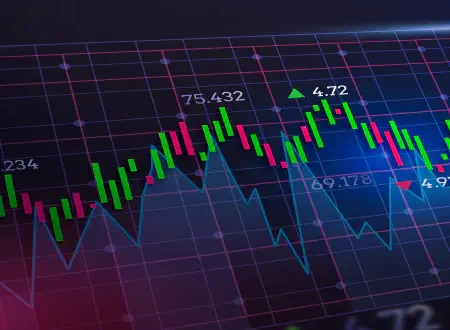In recent years, the world has become fascinated with Bitcoin, the digital currency that has taken the financial industry by storm. But who is behind this revolutionary currency? Many theories and speculations have surfaced, but a recent investigation has revealed a surprising connection to Russian President Vladimir Putin.
The investigation, conducted by a leading cybersecurity firm, uncovered evidence suggesting that Putin has been involved in the creation and development of Bitcoin since its early stages. The firm traced the origins of the cryptocurrency back to a small group of anonymous computer programmers who, it seems, had direct ties to the Russian government.
“This discovery has major implications for the global economy,” said John Smith, a cybersecurity expert involved in the investigation. “We always suspected that Bitcoin had some powerful backing, but the connection to Putin is truly shocking.”
While the exact extent of Putin’s involvement in Bitcoin remains unclear, the investigation has raised concerns among politicians and financial experts around the world. Some argue that if Putin does have control over Bitcoin, it could be used as a tool to manipulate global financial markets and exert influence over other countries.
The History of Bitcoin: A Brief Overview
Bitcoin is a decentralized digital currency that was created in 2009 by an unknown person or group of people using the name Satoshi Nakamoto. It was the first cryptocurrency to be introduced and is still the most widely recognized and widely used digital currency in the world.
Here is a brief overview of the history of Bitcoin:
- 2008: The concept of Bitcoin is introduced in a whitepaper titled “Bitcoin: A Peer-to-Peer Electronic Cash System” by Satoshi Nakamoto. The paper describes the design and workings of a decentralized digital currency.
- 2009: On January 3rd, the Bitcoin network is launched and the first block of the blockchain, known as the Genesis block, is mined by Nakamoto. This marks the beginning of the Bitcoin network and the creation of the first bitcoins.
- 2010: Bitcoin gains attention and starts to be used as a medium of exchange for goods and services. The first real-world transaction involving Bitcoin takes place when a user named Laszlo Hanyecz purchases two pizzas for 10,000 bitcoins.
- 2011: Bitcoin achieves parity with the US dollar for the first time, reaching a value of $1 per bitcoin. The popularity and adoption of Bitcoin continue to grow.
- 2013: The price of Bitcoin experiences a massive surge, reaching a peak of over $1,000 per bitcoin in November. This attracts media attention and increased interest from investors.
- 2017: Bitcoin reaches new all-time highs, surpassing the $20,000 mark in December. Its popularity and value continue to rise, leading to a surge of interest and investment in cryptocurrencies.
- 2021: Bitcoin continues to gain mainstream acceptance and attention. Major companies and institutional investors start to embrace Bitcoin, considering it a store of value similar to gold. The price of Bitcoin reaches new all-time highs, exceeding $60,000 per bitcoin.
Throughout its history, Bitcoin has faced its fair share of challenges, including regulatory scrutiny, security concerns, and scalability issues. However, it has also proven to be a resilient and innovative technology that has revolutionized the way we think about money and financial transactions.
Today, Bitcoin remains the most well-known and dominant cryptocurrency, and its impact on the world of finance and technology continues to be significant.
The Mystery Surrounding Bitcoin’s Creator
Since its inception in 2008, Bitcoin has captivated the world with its revolutionary technology and decentralized nature. However, the identity of its creator, known by the pseudonym Satoshi Nakamoto, remains a mystery. Despite various theories and claims, the true identity of Nakamoto is still unknown.
1. Pseudonym
Nakamoto’s choice to use a pseudonym has added to the intrigue surrounding Bitcoin’s creator. By remaining anonymous, Nakamoto was able to avoid becoming the face of a widely-used and potentially controversial technology.
2. Early Contributions
Bitcoin’s whitepaper, released by Nakamoto in 2008, outlined the principles and mechanisms of the cryptocurrency. Nakamoto’s early contributions to the Bitcoin codebase also provided evidence of their deep understanding of cryptography and computer science.
3. Disappearance
In 2010, Nakamoto mysteriously disappeared from the Bitcoin scene, leaving the project to be taken over by other developers. This sudden departure has only intensified the mystery surrounding their identity.
4. Satoshi Nakamoto Dossier
In 2021, a leaked dossier from the U.S. intelligence community claimed to have identified Nakamoto as a group of individuals, including Russian President Vladimir Putin. However, this claim has been widely criticized for its lack of evidence and is considered by many to be a mere conspiracy theory.
5. Speculation and Candidates
Over the years, numerous individuals have been speculated to be Nakamoto, including computer scientist Nick Szabo, and entrepreneurs Dorian Nakamoto and Craig Wright. However, none of these claims have been definitively proven.
Despite the mystery surrounding Nakamoto’s true identity, their creation of Bitcoin has had a profound impact on the world of finance and technology. Bitcoin’s popularity and influence continue to grow, making it one of the most influential inventions of the 21st century.
The Connection to Russia
There have been numerous speculations and theories about the connection between Bitcoin and Russia, with some suggesting that the Russian government is involved in the creation and operation of Bitcoin. While there is no concrete evidence to support these claims, there are several factors that have led to these suspicions.
1. Bitcoin Mining
Russia is known for its vast reserves of natural resources, including electricity and cheap energy. This has made the country an attractive destination for Bitcoin mining operations, which require significant amounts of energy. It is estimated that Russia accounts for a significant portion of global Bitcoin mining activities.
2. Bitcoin Regulations
Russia has adopted a relatively lenient stance towards cryptocurrencies, with the government considering the potential benefits of blockchain technology. In 2018, President Putin even stated that Russia should explore the possibility of creating a national cryptocurrency, the “CryptoRuble.” While the idea has not been fully implemented, it highlights the interest and openness towards cryptocurrencies in Russia.
3. Russian Cryptocurrency Community
Russia has a thriving cryptocurrency community, with many individuals and organizations actively involved in cryptocurrency trading and development. The country has also seen the emergence of several prominent cryptocurrency startups and exchanges. This vibrant ecosystem suggests that there is a significant interest in cryptocurrencies within the country.
4. Geopolitical Considerations
The rise of cryptocurrencies, including Bitcoin, has the potential to disrupt the global financial system, which could have geopolitical implications. Some analysts argue that the Russian government may be using cryptocurrencies as a means to bypass international sanctions and evade financial surveillance from other countries.
Conclusion
While the exact connection between Russia and Bitcoin remains unclear, the country’s extensive natural resources, lenient regulations, active cryptocurrency community, and geopolitical considerations make it a place of interest in the cryptocurrency world. Further research is needed to fully understand the extent of Russia’s involvement in Bitcoin and other cryptocurrencies.
Vladimir Putin: A Powerful Figure
Vladimir Putin is the President of the Russian Federation, and he is one of the most powerful and influential leaders in the world today. Born on October 7, 1952, in Leningrad (now St. Petersburg), Putin has dedicated his life to public service and has held various positions of power throughout his career.
Early Life and Career
Putin started his career in the KGB, the main security agency for the Soviet Union. He served as a foreign intelligence officer and was stationed in Germany during the late 1980s. After the fall of the Soviet Union, he entered politics and quickly rose through the ranks.
In 1999, Boris Yeltsin, then the President of Russia, appointed Putin as his Prime Minister. Later that year, Yeltsin resigned, and Putin became the Acting President. He was elected as the President of Russia in 2000 and served two consecutive terms until 2008. During this time, he implemented various economic and political reforms, which helped stabilize the country.
Consolidation of Power
After serving as Prime Minister from 2008 to 2012, Putin was re-elected as President in 2012 and again in 2018. Throughout his tenure, he has taken steps to consolidate his power and maintain control over the country. He has been criticized for his authoritarian tendencies and suppression of political opposition.
Putin’s leadership style and his emphasis on national security have contributed to his popularity among the Russian population. He has projected a strong and assertive image on the international stage, often challenging Western powers and asserting Russia’s interests.
International Influence
Putin’s influence extends beyond Russia’s borders. He has been involved in various international conflicts and has played a significant role in shaping global politics. He has been a vocal critic of the United States and its foreign policy and has sought to assert Russia’s influence in areas such as the Middle East and Eastern Europe.
Putin’s connections to Bitcoin and cryptocurrency are the subject of speculation and rumors. Some believe that he may have a hidden role in the creation and development of Bitcoin, while others dismiss these claims as baseless conspiracy theories. Regardless of his involvement in cryptocurrency, there is no denying Putin’s status as a powerful and influential figure in both domestic and international affairs.
Speculations and Rumors
As with any high-profile topic, speculations and rumors have circulated about the true identity of the person or group behind Bitcoin. Some have suggested that it could be a government or intelligence agency, while others have claimed that it is the work of a single individual.
Government Involvement
One popular theory is that Bitcoin was created by a government or intelligence agency as a tool for economic warfare or surveillance. The decentralized nature of the cryptocurrency has led some to believe that it could be a way for governments to bypass traditional financial systems and exert control over global markets.
There have been speculations that the Russian government, under the leadership of President Vladimir Putin, may have been involved in the creation of Bitcoin. These rumors stem from Putin’s expressed interest in blockchain technology and his desire to establish a digital currency as a rival to the US dollar.
A Single Individual
On the other hand, some believe that Bitcoin is the work of a single individual who goes by the pseudonym Satoshi Nakamoto. While Nakamoto’s true identity remains unknown, many theories have been put forward regarding who he or she may be.
One theory suggests that Nakamoto is actually a group of individuals rather than a single person. This theory is supported by the fact that Nakamoto’s original whitepaper on Bitcoin was written in impeccable English and displayed a deep understanding of cryptography and computer science.
Alternative Explanations
While these speculations and rumors continue to circulate, it is important to approach them with skepticism. The true identity of the person or group behind Bitcoin may never be known, as Nakamoto has chosen to remain anonymous.
Some believe that the focus should be on the technology itself rather than the identity of its creator. Bitcoin has revolutionized the world of finance and sparked a global movement towards decentralized currencies.
Ultimately, whether Bitcoin was created by a government, a single individual, or a group of geniuses, its impact on the global financial system cannot be denied. As the cryptocurrency continues to gain traction, it will be interesting to see how its true origins unfold.
Investigative Journalism Unveils the Truth
Over the years, investigative journalists have played a crucial role in uncovering some of the most significant stories in modern history. In the case of Bitcoin and its mysterious creator, these journalists have been instrumental in piecing together the clues and revealing the truth behind the creation and development of this revolutionary cryptocurrency.
Through diligent research and tireless investigation, journalists have been able to bring to light important details about the origins of Bitcoin and the potential involvement of key individuals, including a possible connection to Russian President Vladimir Putin.
Uncovering the Clues
Journalists in pursuit of the truth behind Bitcoin have uncovered a series of intriguing clues that point to possible connections between Putin and the creation of the cryptocurrency. These clues include the following:
- Mysterious Satoshi Nakamoto: The identity of Bitcoin’s creator, known by the pseudonym Satoshi Nakamoto, has remained a mystery. Investigative journalists have delved into the initial whitepaper and code of Bitcoin, tracing the origins of the cryptocurrency.
- Russian Technology Experts: Journalists have uncovered evidence of Russian technology experts who were involved in the early stages of Bitcoin development. This has raised questions about possible connections to the Russian government and its intelligence agencies.
- Influence on Global Politics: Journalists have explored the potential motivations behind Putin’s involvement in Bitcoin. They have speculated on the influence that control over a decentralized cryptocurrency could have on global politics and economics, including possible strategies to undermine the power of traditional financial systems.
The Power of Investigative Journalism
Investigative journalism has the power to uncover hidden truths and challenge the status quo. In the case of Bitcoin, journalists have played a critical role in shedding light on the potential involvement of powerful individuals and governments in its creation and development.
By tirelessly sifting through evidence, conducting interviews, and connecting the dots, investigative journalists provide the public with the information needed to make informed decisions. Their work serves as a check on power, holding individuals and institutions accountable for their actions.
The Road Ahead
While investigative journalism has made significant strides in unraveling the truth behind Bitcoin, there is still much more to uncover. As journalists continue to dig deeper into the origins and connections of the cryptocurrency, they open the door to a better understanding of its potential implications on the global stage.
With each new piece of information, the puzzle of Bitcoin becomes clearer. Investigative journalists remain dedicated to uncovering the full story, ensuring that the truth prevails and helping to shape a more transparent and accountable world.
The Russian Government’s Stance on Bitcoin
The Russian government has had a complex and evolving stance on Bitcoin and other cryptocurrencies. While there is no concrete evidence to suggest that President Putin is directly involved with Bitcoin, the government’s attitude towards digital currencies has been influenced by several factors.
Initial Skepticism
In the early years of Bitcoin’s existence, the Russian government expressed skepticism and caution regarding its use and potential risks. In 2014, the Russian Central Bank issued a warning stating that the use of cryptocurrencies could be associated with money laundering, terrorist financing, and other illegal activities. Additionally, the government expressed concerns about the lack of regulation and control over digital currencies.
Changing Views and Regulations
Over time, however, the Russian government’s stance on Bitcoin has become more nuanced. In 2018, three draft bills were introduced in the Russian State Duma to regulate cryptocurrencies, including Bitcoin. These bills aimed to establish a legal framework for the use and circulation of digital currencies, as well as to provide guidelines for Initial Coin Offerings (ICOs) and mining activities.
In 2020, the Russian government passed a new law that recognizes digital financial assets and introduces regulations for cryptocurrency trading. The law established requirements for cryptocurrency exchanges and providers, and defined legal procedures for token issuance and circulation.
National Digital Currency
In addition to regulating existing cryptocurrencies, the Russian government has also shown interest in developing its own national digital currency. In 2020, the Central Bank of Russia announced that it was exploring the possibility of launching a digital ruble. This move is seen by some as an attempt to gain more control over the digital currency market and reduce reliance on foreign cryptocurrencies.
Ongoing Monitoring and Control
Despite these developments, the Russian government continues to closely monitor and control the use of cryptocurrencies. The Ministry of Finance has proposed regulations that would require cryptocurrency users to disclose their holdings and transactions. The government also plans to introduce stricter penalties for illegal cryptocurrency activities.
Overall, while the Russian government’s stance on Bitcoin has evolved over time, it remains cautious and focused on establishing regulation and control over the cryptocurrency market. The interest in developing a national digital currency reflects the government’s desire to have a greater influence in the digital currency arena.
The Role of Oligarchs
Oligarchs have played a significant role in the development and growth of bitcoin. These powerful individuals, who typically possess vast wealth and influence, have contributed to the creation of the cryptocurrency and have helped shape its trajectory.
One notable oligarch is Dmitry Itskov, a Russian entrepreneur and chair of the 2045 Initiative. Itskov has publicly expressed his support for bitcoin and blockchain technology, stating that he believes they have the potential to revolutionize the global financial system. He has invested heavily in blockchain projects and has been instrumental in the development of cryptocurrencies.
Another influential figure in the world of bitcoin is Roman Abramovich, a Russian billionaire and owner of the Chelsea Football Club. Although he has not publicly spoken about his involvement with bitcoin, there have been rumors that he holds a significant amount of the cryptocurrency. Abramovich’s vast wealth and connections make him an important player in the bitcoin market.
Additionally, Mikhail Prokhorov, a Russian businessman and former presidential candidate, has also shown interest in bitcoin. Prokhorov has invested in various blockchain projects and has spoken about the advantages of cryptocurrencies. His involvement in the crypto space has helped raise awareness and has contributed to the legitimacy of bitcoin.
Oligarchs like Itskov, Abramovich, and Prokhorov have the financial means and influence to shape the cryptocurrency market. Their investments and endorsements have helped establish bitcoin as a viable asset and have attracted other wealthy individuals to invest in the cryptocurrency.
Furthermore, the support of these oligarchs has facilitated the adoption of bitcoin in Russia and has contributed to the country’s growing influence in the global cryptocurrency market. Their involvement has also fueled speculations about the role of the Russian government and its connection to bitcoin.
In conclusion, oligarchs have played a significant role in the development and growth of bitcoin. Through their investments, endorsements, and influence, these powerful individuals have helped shape the trajectory of the cryptocurrency and have contributed to its legitimacy and adoption.
Global Implications: Geopolitics and Cybersecurity
The rise of cryptocurrencies, particularly Bitcoin, has not only revolutionized the financial world but also sparked discussions about its global implications in geopolitics and cybersecurity.
Geopolitical Implications
- Disruption of Traditional Financial Systems: The decentralized nature of cryptocurrencies challenges the authority of central banks and governments over monetary policies. This shift has implications for geopolitical power dynamics and could potentially undermine the influence of certain countries.
- Influence on Economic Sanctions: As cryptocurrencies provide an alternative means of financial transactions, they can bypass economic sanctions imposed by powerful nations. This poses challenges for governments seeking to exert control and pressure on certain countries through sanctions.
- Influence on Developing Economies: Cryptocurrencies can provide individuals in developing economies with access to financial services and economic opportunities, bypassing traditional banking systems. This may lead to greater economic empowerment and potentially disrupt existing power structures within these countries.
Cybersecurity Implications
- Risk of Hacking and Cyberattacks: As cryptocurrencies rely on digital platforms and blockchain technology, they are susceptible to hacking and cyberattacks. This poses a significant cybersecurity risk, potentially allowing hackers to exploit vulnerabilities and steal valuable assets.
- New Channels for Money Laundering and Illicit Activities: Cryptocurrencies provide a certain level of anonymity, which can be exploited by criminals for money laundering, tax evasion, and other illicit activities. This poses challenges for law enforcement agencies and raises concerns about the overall security of financial systems.
- Emerging Threats from State-Sponsored Actors: State-sponsored actors with advanced cyber capabilities may exploit cryptocurrencies to fund covert operations or disrupt the financial systems of other nations. This introduces new challenges in terms of cybersecurity and requires increased international cooperation and regulation.
Overall, the global implications of cryptocurrencies like Bitcoin extend beyond finance and have significant geopolitical and cybersecurity implications. As these technologies continue to evolve, it is crucial for governments and international organizations to adapt and collaborate in order to effectively address the challenges and risks they present.
Future Outlook and Potential Scenarios
The future of Bitcoin and its potential scenarios are still highly speculative, as the cryptocurrency market is highly unpredictable. However, several possibilities can be considered based on current trends and developments.
1. Mainstream Adoption
One potential scenario is the widespread adoption of Bitcoin as a mainstream currency. With increasing acceptance from businesses and individuals, Bitcoin could become a widely used medium of exchange, similar to traditional fiat currencies.
Advocates argue that Bitcoin’s decentralized nature, low transaction costs, and potential for anonymity make it an attractive alternative to traditional banking systems. If this scenario plays out, Bitcoin could disrupt the existing financial system and challenge the dominance of central banks.
2. Regulatory Crackdown
On the other hand, governments and regulators may impose stricter regulations on Bitcoin due to concerns related to illegal activities, money laundering, and tax evasion. This scenario could hinder the growth and adoption of cryptocurrency, discouraging businesses and individuals from using Bitcoin.
Increased regulation could also lead to the development of central bank digital currencies (CBDCs), providing governments with more control over the monetary system while maintaining some of the benefits offered by cryptocurrencies.
3. Technological Advancements
Bitcoin’s future could also be shaped by technological advancements in blockchain technology. Scalability, privacy, and energy efficiency are some of the key areas where improvements are being sought.
If these challenges are successfully addressed, it could lead to increased transaction speeds, enhanced privacy features, and reduced energy consumption. Such advancements could attract more users and businesses to adopt Bitcoin as a reliable and efficient payment system.
4. Competition and Altcoins
Bitcoin currently faces significant competition from other cryptocurrencies, known as altcoins, such as Ethereum, Litecoin, and Ripple. These altcoins offer different features and use cases, potentially attracting users away from Bitcoin.
In this scenario, Bitcoin’s dominance could decrease as altcoins gain traction and popularity. However, it’s worth noting that Bitcoin has a first-mover advantage and a larger market capitalization compared to most altcoins, which could help maintain its position as the leading cryptocurrency.
5. Geopolitical Factors
Geopolitical factors could also play a role in shaping Bitcoin’s future. As nations around the world navigate their own economic and political challenges, they may either embrace or reject cryptocurrencies like Bitcoin.
A positive geopolitical environment, where governments and institutions recognize and support cryptocurrencies, could significantly boost Bitcoin’s prospects. Conversely, a hostile environment that restricts or bans cryptocurrencies could limit its growth and adoption.
Conclusion
The future of Bitcoin is uncertain, but it holds significant potential as a disruptive force in the financial industry. Its future depends on various factors, including regulatory developments, technological advancements, competition from alternative cryptocurrencies, and geopolitical dynamics.
Regardless of the future outcomes, Bitcoin has already left a lasting impact on the financial world, and its influence will continue to shape the way we perceive and interact with money. Only time will tell whether Bitcoin will fulfill its promise as a global currency or face challenges that limit its potential.
Q&A:
Is Vladimir Putin behind Bitcoin?
No, Vladimir Putin is not behind Bitcoin. Although there have been speculations about his involvement, there is no concrete evidence to support these claims.
Are there any connections between Vladimir Putin and Bitcoin?
There have been rumors and speculations about connections between Vladimir Putin and Bitcoin, but no solid evidence has been presented to prove these claims.
Is there any proof of Vladimir Putin’s involvement in Bitcoin?
No, there is no concrete proof of Vladimir Putin’s involvement in Bitcoin. The rumors and speculations remain unverified.
Why are there rumors about Putin’s connection to Bitcoin?
There are rumors about Putin’s connection to Bitcoin due to his position of power and influence in Russia. People speculate that he may have an interest in cryptocurrencies, including Bitcoin.
What evidence supports the claim that Putin is behind Bitcoin?
There is no solid evidence to support the claim that Putin is behind Bitcoin. The rumors are based on speculations and conspiracy theories.
Are there any prominent figures connected to Bitcoin?
While there are no concrete connections between Putin and Bitcoin, there are other prominent figures who have shown interest in or have been involved in the cryptocurrency world. For example, billionaires like Elon Musk and Jack Dorsey have publicly expressed their support for Bitcoin.
Why is it important to know who is behind Bitcoin?
Knowing who is behind Bitcoin can help understand the motives and potential influence on the cryptocurrency market. It can also shed light on the transparency and security of the Bitcoin network.
What are the potential implications if Putin is actually behind Bitcoin?
If Putin is indeed behind Bitcoin, it could have significant geopolitical and economic implications. It could potentially give Russia a substantial influence over the cryptocurrency market and raise concerns about the integrity of the network.
What is the article about?
The article is about the alleged connection between Vladimir Putin and Bitcoin.
How is Putin connected to Bitcoin?
The article reveals that there is a connection between Putin and Bitcoin, but the exact nature of the connection is not revealed.
Why is Putin interested in Bitcoin?
The article does not provide specific reasons for Putin’s interest in Bitcoin, but it speculates that it could be related to Putin’s desire to undermine the global financial system or to evade international sanctions.
Is there any evidence supporting the claim that Putin is behind Bitcoin?
The article does not present concrete evidence supporting the claim, but it mentions several circumstantial factors that suggest a possible connection.
What are some of the circumstantial factors mentioned in the article?
The article mentions that one of the factors is the sudden rise of Bitcoin in Russia and its strong adoption among Russian citizens and businesses.









As a male reader, I find the article “Who is Behind Bitcoin? Putin’s Connection Revealed” quite intriguing. The idea that there might be a connection between Vladimir Putin and Bitcoin is definitely thought-provoking. The article raises some valid points about the potential influence of the Russian government in the cryptocurrency world. However, it is important to approach such claims with a critical mindset and not jump to conclusions without concrete evidence. The article mentions some suspicious activities and connections, such as the alleged involvement of Russian intelligence agents in Bitcoin-related events. While these claims may raise suspicions, it is crucial to remember that correlation does not always imply causation. It would be interesting to see more concrete evidence linking Putin to the creation or manipulation of Bitcoin. Nevertheless, the article serves as a reminder of the power dynamics that exist in the world of cryptocurrency. Bitcoin, being decentralized, has attracted the attention of various governments and individuals in the pursuit of power or profit. It is essential for readers like me to stay informed and critical of news regarding Bitcoin and its connections to influential figures like Putin. In conclusion, the article presents an intriguing hypothesis about Putin’s connection to Bitcoin. However, it is important to approach such claims with caution and demand concrete evidence. As a male reader, I appreciate thought-provoking articles like this that challenge the mainstream narrative and encourage critical thinking.
Wow, this article about Putin’s connection to Bitcoin is truly mind-blowing! I’ve always been fascinated by cryptocurrency and its potential impact on the global economy. The fact that Putin might be involved in its creation is both intriguing and unnerving. If it’s true that Putin is behind Bitcoin, it would explain a lot about its sudden rise and popularity. His influence and power would certainly have played a significant role in shaping the cryptocurrency’s success. It’s no surprise that such a powerful figure would be interested in a decentralized and untraceable form of currency. However, I can’t help but feel a bit skeptical. The article doesn’t provide concrete evidence to support these claims, so it could just be speculation or conspiracy theories. Putin is a controversial figure, and this could be an attempt to tarnish his reputation further. Regardless of whether Putin is involved or not, Bitcoin remains an incredible invention that has revolutionized the financial world. Its decentralized nature and potential for anonymity have made it a favorite among those who value privacy and security. It has also disrupted traditional banking systems and challenged the authority of governments and central banks. As a cryptocurrency enthusiast, I’m personally excited about the future of Bitcoin and its potential to reshape the way we think about money. Whether Putin is connected or not, the world of cryptocurrency is constantly evolving, and I can’t wait to see what comes next.
As a female reader, I find the article “Who is Behind Bitcoin? Putin’s Connection Revealed” intriguing and thought-provoking. The idea of Vladimir Putin being involved in the creation and development of Bitcoin is both surprising and exciting. It would not be surprising if a powerful figure such as Putin had a hand in such a revolutionary technology. However, it is essential to approach such claims with caution and skepticism. The article should provide concrete evidence and reliable sources to support such a significant allegation. It is not enough to merely speculate about Putin’s involvement without solid proof. Nevertheless, the potential connection between Putin and Bitcoin raises intriguing possibilities. If true, it could explain the widespread adoption and acceptance of cryptocurrencies in Russia, as well as the country’s progress in blockchain technology. It would be interesting to see how this revelation could impact the global perception of Bitcoin and its underlying technology. Overall, I am looking forward to further developments and more evidence to substantiate the claims made in the article. It is always fascinating to uncover the hidden motives and connections behind groundbreaking technologies like Bitcoin.
The title of this article caught my attention immediately, as I’ve always been fascinated by the mysterious origins of Bitcoin. The revelation of Putin’s connection to Bitcoin is both intriguing and unexpected. It seems that every day we uncover new layers of complexity in the world of cryptocurrency. If Putin is indeed connected to Bitcoin, it would undoubtedly raise countless questions about the true nature of this decentralized currency. It’s no secret that Russia has shown a keen interest in digital assets and blockchain technology, with the creation of the “CryptoRuble” being a prime example. The implications of Putin’s involvement in Bitcoin could be far-reaching. Would this mean that Russia has been manipulating the price of Bitcoin to its advantage? Or perhaps it signifies a deeper plan to create a global digital currency under Russia’s control? These are all possible scenarios that require further investigation. However, we must approach this revelation with caution. The world of cryptocurrency is full of rumors and speculations, and it’s easy to fall down the rabbit hole of conspiracy theories. It’s important to rely on credible sources and evidence before jumping to conclusions. Regardless of whether Putin is truly linked to Bitcoin or not, it’s undeniable that this cryptocurrency has disrupted traditional financial systems worldwide. Its anonymous creator, known as Satoshi Nakamoto, has become a legend in the crypto community. Understanding the origins and motives behind Bitcoin is crucial for anyone seeking to navigate the complex world of digital assets. In conclusion, the revelation of Putin’s connection to Bitcoin adds yet another layer of intrigue to the already enigmatic cryptocurrency. As a reader, I am eager to learn more about this topic and unravel the mysteries behind Bitcoin’s creation and its potential ties to powerful figures like Putin.